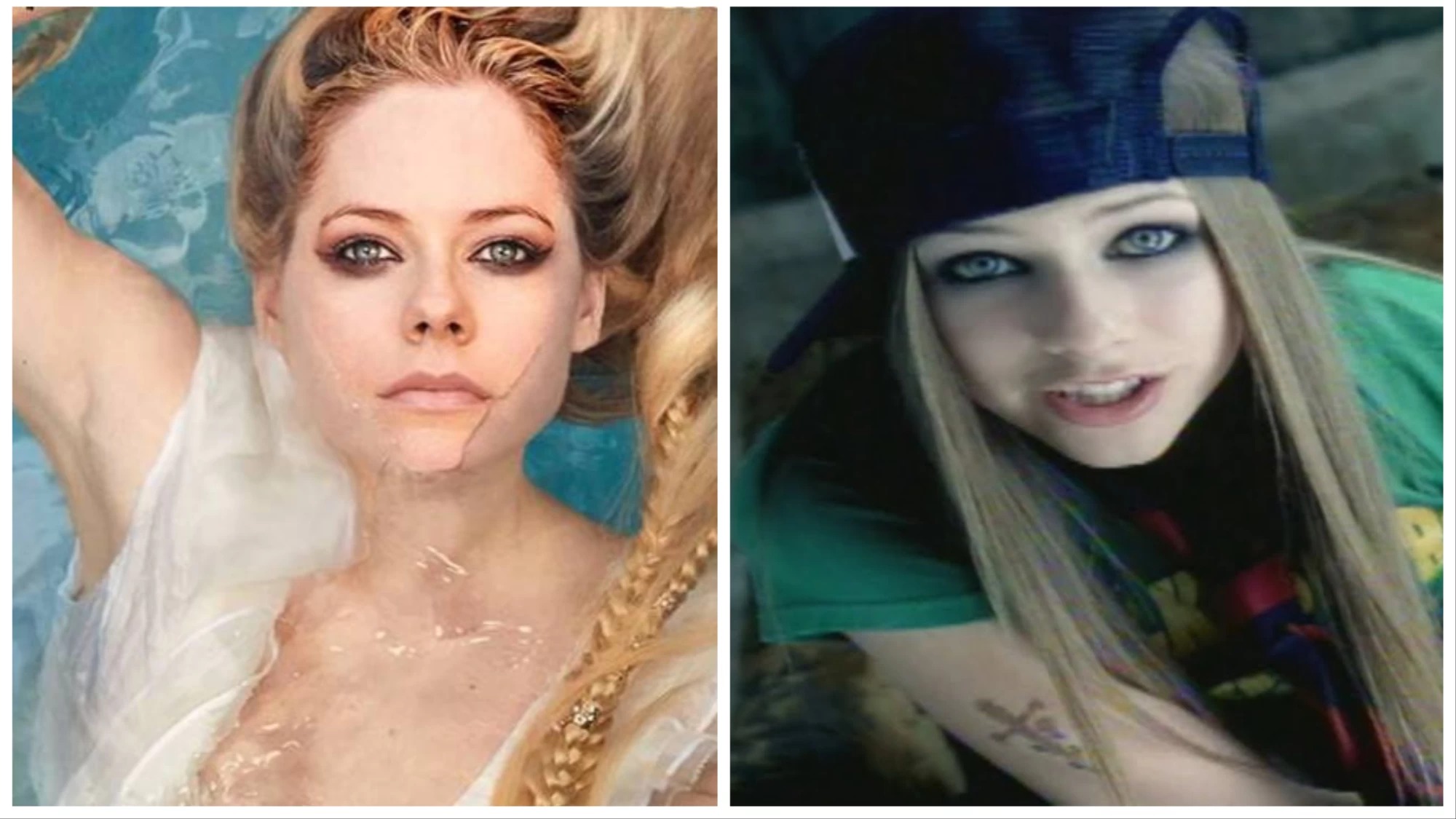Around a year ago, Avril Lavigne was the talk of Twitter. Or at least an old conspiracy theory about her death belatedly made it to Twitter Moments, five years after a Brazilian fan site (“Avril Esta Morta”) first suggested the singer had died and been replaced by a doppelgänger named Melissa. The rumor was basically a joke, but for Cool Music Twitter, so was Avril Lavigne by that point. The singer’s angsty pop singles “Sk8er Boi” and “Complicated” had long been regulated to ironic karaoke jams amongst former fans who now had office jobs, while Avril had seemingly not matured at the same rate. The lead single off her self-titled 2013 album was literally titled “Here’s to Never Growing Up.” It arrived sandwiched between “Rock N Roll” (“I don’t care if I’m a misfit / I like it better than the hipster bullshit / I am the motherfuckin’ princess / You still love it.”) and the racist EDM-inspired mess “Hello Kitty.”
Meanwhile, the real life of Avril Ramona Lavigne wasn’t all Sanrio cupcakes and getting wasted on “bottles of whatever.” In 2015, the singer got divorced from Chad Kroeger of Nickelback, and was privately battling Lyme disease, as she later revealed. The new single Avril released this week, “Head Above Water,” is a poignant reflection of the now-33-year-old’s life over the last few years, totally free from pretense. “One night, I thought I was dying, and I had accepted that I was going to die,” Avril wrote in a heartfelt note to fans about the inspiration for the song, backed not by abrasive guitar chords but a dramatic piano score. “My mom laid with me in bed and held me. I felt like I was drowning.” The track is reminiscent of the best emo ballads from Avril’s Let Go era — see her perennially epic “I’m With You” — but reveals far more than a vague sense of teen angst.
The “Sk8er Boi” singer enters a league of pop stars turning personal struggles into soaring pop songs. Demi Lovato bravely fought her addiction battle in the public eye through a few documentaries, countless interviews, and a thematically cohesive album. Fellow former child star Selena Gomez was changing what pop authenticity meant even before revealing she had undergone a kidney transplant, due to her struggle with Lupus, last year. She purposely left her hospital bracelet on in music videos shot by Petra Collins in the photographer’s famously unfiltered style, a departure from the high-production aesthetics of Selena’s Disney days. (The first track Selena released after spending three months in a Tennessee treatment center in 2016 began with the bassline from “Psycho Killer” by Talking Heads.) To coincide with the release of “Head Above Water,” the Avril Lavigne Foundation has launched a charitable t-shirt campaign to benefit people affected by Lyme disease who can’t afford treatment.
Avril is also hardly the only pop star from 2002 to rule U.S. airwaves in 2018. (Noughties nostalgia is obviously one hell of a drug — see fashion’s rekindled obsession with anything Juicy Couture, Von Dutch, and UGGs.) Christina Aguilera, who dominated 2002 with assless chaps and suggestive “slutdrops” that we would only later understand as empowering, just headlined one of the hottest shows at New York Fashion Week after releasing her own stripped-down comeback album Liberation. Kelly Clarkson is still America’s Sweetheart after shooting to fame on American Idol in its 2002 infancy. Beyoncé and Jay-Z, who were just budding lovebirds on raunchy 2002 rap collab “03 Bonnie & Clyde,” never went away — but is the power couple’s On the Run Tour not the most genius sequel ever? Missy Elliott, like Bey’s husband, is hardly a pop star — she’s one of the greatest female producers of all time. But 16 years after dropping “Work It,” even her “dancing girl” is now a v. relevant advocate for LGBTQ expression.
Still, most of these stars never really disappeared from the mainstream pop consciousness. Avril’s comeback says as much about the loyalty of her fans as it does the quality of her new music. And I mean that in a good way. Reading the YouTube comments on any supposed “flop” from Avril’s archive is a far more heartwarming exercise than you might expect. Because while haters were crying “poser” and “PUNK IS NOT A LOOK,” or typing it out in heated LiveJournal debates, true fans knew Avril was always viscerally uncomfortable with being labeled. “My music definitely isn’t punk,” Avril told an interviewer in the early aughts. “Punk is not commercial, which is what I’m doing.”
Avril’s skate rock aesthetic might have been coaxed out of her, or it might have been entirely the creation of her managers. Does it matter? Her songs from that period still captured a feeling of awkward teen/tween self-discovery, with all its black rubber bracelets and factory-distressed jeans, that hadn’t previously been deemed legitimate. Authenticity in the capitalist pop world is nearly always a strategy rather than a truth. It’s been interpreted by Katy Perry as live-streaming tearful apologies, Miley Cyrus as twerking in peach pleather, and Justin Timberlake as ditching the black music sounds that garnered him critical solo acclaim to become a flannel-rocking Man of the Woods. Just as Hot Topic is still a haven for outsider teens across America, creating a sense of community for kids as unsure about themselves as they are world, so was Avril’s music.
Avril’s awkward phase of self-discovery might have lasted longer than most, and wasn’t without bigger bumps along the way, as evidenced by the statement she issued circa “Hello Kitty.” (“RACIST??? LOLOLOL I spend half my time in Japan.”) But what is flipping out on Twitter if not authentic AF? Particularly in today’s ruthless cancel culture, it’s nice to see artists go from vilified to validated, not that Avril would care what anyone but her fans think anyway.

